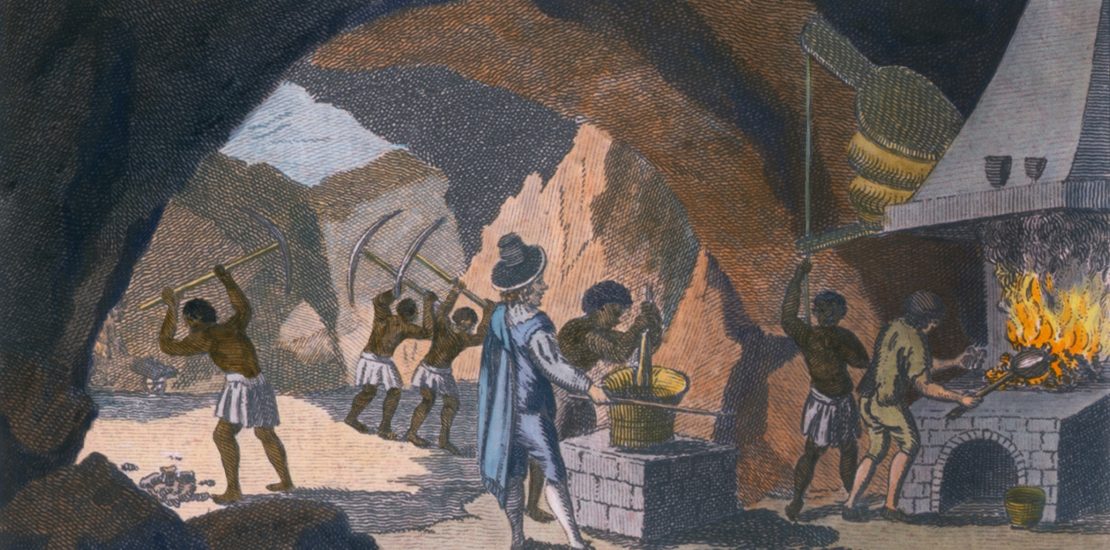My Work is My Life
- September 26, 2022
- Posted by: Philip Struble
- Category: Uncategorized

“Your work is going to fill a large part of your life, and the only way to be truly satisfied is to do what you believe is great work. And the only way to do great work is to love what you do.”
Work-Life Transition
In the 1700s and 1800s, work-life was hard.
Days were long, and working conditions were rough and oftentimes dangerous. Children were often forced to work in precarious situations, and older adults were still working 12-hour days. All of this put an immense strain on people’s personal lives.
Then, in the late 1800s, we entered an age of mass production.
Work conditions improved, businesses scaled, and the concept of “working to one day retire” was born. This was the beginning of “work-life balance.” You worked for 8 to 10 hours per day, and you spent the rest of your time with your family and friends.
Then the digital revolution and the two worlds of work and family began to intermingle.
The tech giants and other major employers began to create mini-cities for their employees that less resembled the industrial production facilities of the 1800s and felt more like an all-inclusive college campus.
This was the first time in history that work and personal life had become completely intertwined—not out of necessity, but convenience and choice.
You literally did not have to go home if you did not want to.
These businesses wanted you to work all the time because -well – working for them was the most important thing you could ever do. So the benefits of the companies were bestowed to those who spent the largest part of their lives working.
The Change
Then the pandemic hit.
Employees were sent home, and everyone scrambled to figure out how to work remotely.
No daycare, showers, or traffic jams. The day’s attire is pajamas – unless a Zoom call is required.
Of course, nobody is looking over your shoulder, checking your progress, or popping in to interrupt you. You are nearly autonomous, which The New York Times calls “the Yolo Economy.” No more burn-out, work stress, or office politics (so they thought).
And no more being identified as the work you do.
A Good Thing?
In reality, this scenario only happened to a tiny portion of our working population. It is tough to run an excavator, drive nails, or re-build an engine remotely. For these many employees who wear the company logo on their breast pocket, their work will always be their life.
So, while part of our economy is distancing themselves from their work identity, the question is, “is that a good thing?”
Work-Life Balance
As Steve Jobs is paraphrased, work is a big part of our life, so fill it with something you love.
If you love your work, stick with it and incorporate it into a balance within your life. If it means going to an office, a construction site, or a factory, good. If it means staying up late and studying so you will be better at it, better.
If you don’t love what you do, doing it remotely won’t help. In fact, doing a job you dislike from home means it will be that much harder to get off the couch and do what you are paid to do.
If this is you, find a new job. The are many resources available to help you discover what you love doing and how you can do it for a living.
The Bible
The Bible makes it clear that work matters to God.
No matter your profession or occupation – whether you’re a parent, a bus driver, an artist, or an engineer – God cares about your work.
God provides us with unique skills, gifts, and talents and calls us to particular roles and activities. Although the roles might have apparent differences in importance, our callings are equal.
They are a spiritual calling. There are no second-class callings from God. We will be worthy of this calling if we are devoted in our relationship with Him and look to Him only for leadership and strength.
Ecclesiastes 5:18-19 says
Take care of yourself, have a good time, and make the most of whatever job you have for as long as God gives you life. And that’s about it. That’s the human lot. Yes, we should make the most of what God gives, both the bounty and the capacity to enjoy it, accepting what’s given and delighting in the work. It’s God’s gift! God deals out joy in the present, the now. It’s useless to brood over how long we might live.
God’s design is for you to love your work. Therefore, take pride in your labor and identify with your employer and your product.
